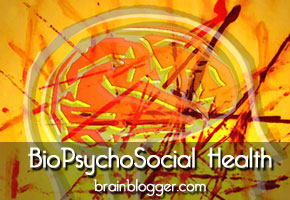Stroke Recovery Improves with Music
 Friday, August 14, 2009 at 09:11PM
Friday, August 14, 2009 at 09:11PM Dr. Kay is a medical doctor with training in pathology, and an avid writer. During his training, he worked on pre-clinical and clinical trials in a variety of laboratories related to alcohol effects on the brain, cancer diagnosis, and alternative medicine.  Stroke victims face a long and difficult road to recovery, and many of them suffer from irreparable residual effects. Researchers around the globe are searching for treatment options that improve recovery in stroke patients, but to date no magic bullet has arrived. Currently, patients are treated with a multimodal approach, including physical therapy, occupational therapy and counseling as needed.
Stroke victims face a long and difficult road to recovery, and many of them suffer from irreparable residual effects. Researchers around the globe are searching for treatment options that improve recovery in stroke patients, but to date no magic bullet has arrived. Currently, patients are treated with a multimodal approach, including physical therapy, occupational therapy and counseling as needed.
One simple thing that may aid in the recovery of mental function following stroke is listening to music. According to a recent study, stroke victims who listened to music for 1 to 2 hours daily showed significant improvement in certain mental functions than those that did not.
When compared to patients who listed to audio books or nothing at all, patients who listened to music had significantly better performance on tasks of attention and verbal memory. Patients in the music group also reported lower levels of depression.
Previous studies have proven that healthy individuals learn more effectively when listening to music they enjoy. Studies also showed music to be beneficial in patients with dementia, schizophrenia, autism, dyslexia and depression.
The reason for this widespread beneficial effect of music on cognition is a mystery. Some have hypothesized that improvements in mental function are due to the mood-enhancing and stress-lowering effects of music. Others point to the complexity of neural circuits that are activated when listening to music. Music requires activity of emotional, cognitive and memory centers in both brain hemispheres. Stimulation of divergent neural networks may have beneficial effects on these pathways by as yet unknown mechanisms.
The great thing about music is that is cheap and easily accessible. In the most recent study, stroke patients were asked to listen to music of their choosing for 1 to 2 hours a day. Almost any patient will be able to participate in this simple plan.
Reference
Sarkamo, T., Tervaniemi, M., Laitinen, S., Forsblom, A., Soinila, S., Mikkonen, M., Autti, T., Silvennoinen, H.M., Erkkila, J., Laine, M., Peretz, I., Hietanen, M. (2008). Music listening enhances cognitive recovery and mood after middle cerebral artery stroke. Brain, 131(3), 866-876. DOI: 10.1093/brain/awn013


Reader Comments